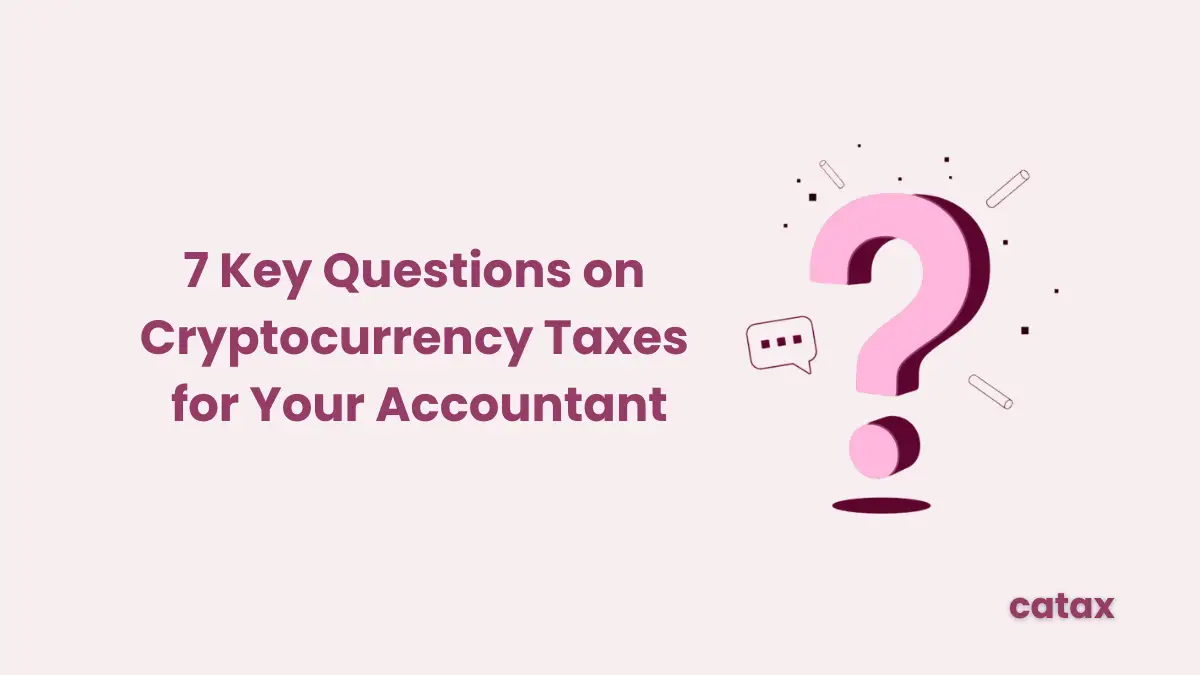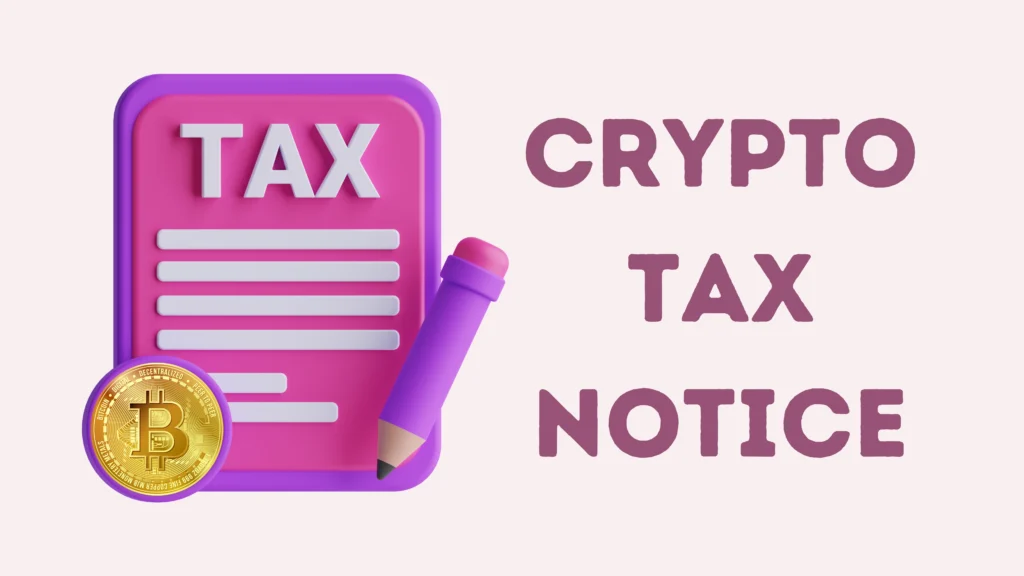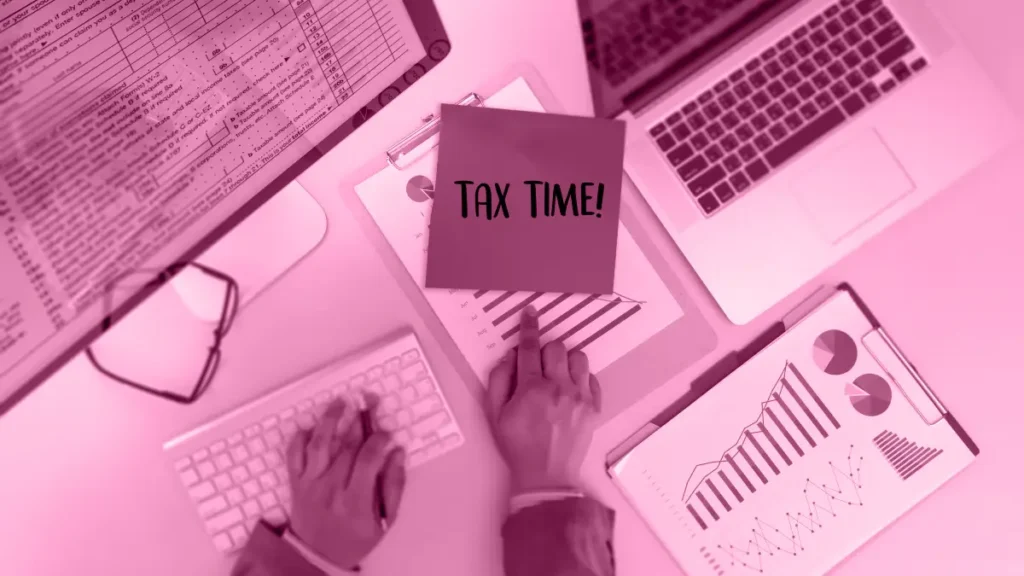If you are a trader or investor in cryptocurrency, you are likely to have many crypto tax questions about whether you need to pay taxes on your crypto holdings. In addition to this, you might also find yourself engaged in the anonymity of your transactions across various exchanges, wondering how to guide through this situation.
In India Income Tax Department has asked top crypto exchanges like Coindcx, Wazirx, Zebpay, Mudrex, etc. regarding their customers in India. Furthermore, they took utilized that information and sent notices to several people who did not report their cryptocurrency and escaped taxes.
7 Key Crypto Tax Questions to Ask
Everyone knows that the Income Tax Department is playing significant role on the crypto taxation. If you haven’t completely followed the rules for reporting your taxes on cryptocurrency, now is the time to correct that. If you are feeling unsure you can schedule a meeting with your Chartered Accountant (CA) to discuss questions on cryptocurrency taxes. You can ask various questions to ensure if they know about the latest crypto tax regulations and capable of resolving you concerns related to crypto and some of the important questions are as follows .
1. What type of tax liabilities do I have regarding the cryptocurrencies I own?
The Indian Tax Department sees cryptocurrency like property. So, when you buy or sell your crypto, its treated similar to buying or selling property. Certainly, if you sell crypto within a year of buying it, you will pay Short-term Capital Gains Tax. But if you wait more than a year, you will have to pay Long-term Capital Gains Tax.
2. I traded some of my Ethereum for Bitcoin without converting it back to fiat currency. Do I still have to pay taxes on that transactions?
This is a major question of people, that if you didn’t sell the crypto, do you still need to pay capital gains tax? But in India, the Income Tax Department is pretty straightforward. Any time you get rid of a capital asset, it counts as a taxable event. Getting rid of (Disposal) can mean a number of different things – from selling it, swapping it for other cryptocurrencies, using crypto to purchase other goods, or even gifting crypto.
How do you figure out your capital gains in this situation? For crypto-to-crypto exchanges, it’s crucial to maintain precise records of all your transactions. If you haven’t already, you can utilize crypto tax software to organize your records. In this scenario, the fair market value of the crypto you traded on the transaction date becomes your sales proceeds. From this, you can subtract the purchase cost to determine your capital gain.
3. I’m receiving some of my salary in bitcoin. How do I report this income when the value of bitcoin keeps going up and down?
You must add the income you earn in cryptocurrency to your taxable income for tax calculations. The India Income Tax Department specifies that you should use the fair market value of the bitcoin at the time you received it to calculate your total income. Keeping precise records of when the cryptocurrency was deposited into your account can be difficult.
4. Will I have to pay self-employment tax for my cryptocurrency mining? What expenses count as deductions on my taxes?
The answer for this depends upon the nature of the cryptocurrency mining. For example, may be you’re mining bitcoin but as an employee working for someone or you might also be mining cryptocurrency but as a hobby, rather than a full time business. In both the cases you would not be subject to self-employment tax.
But in the case where you mining cryptocurrency in your own name and as a business, probably you would be considered self-employed and it will expected to pay self-employment tax. You would also be able to get deductions on your taxes on certain expenses like hardware and software costs, electricity and utility bills etc. from your profits to determine your net taxable income.
5. Do I have to report cryptocurrency received from a hard fork on my tax return? Do I need to disclose this in my tax return?
You must report cryptocurrency received from a hard fork on your tax return in India. The income form such sources should be disclosed in your tax return. Additionally, experts generally agree that the value of coins received from a fork is taxable as ordinary income based on their value on the fork date. This value also becomes your cost basis for future sales of the forked cryptocurrency.
6. What should I do if I haven’t kept detailed records of my cryptocurrency transactions? How can I fix it now?
Firstly, you can use our services to sort out your transactions and keep your records correct. If there are any issues, like if the exchange you used is closed, you can make an estimate and clarify why you did so when you file your taxes. This will protect you from getting a big fine if the Income Tax Department investigates the problem.
7. What steps can I take if I haven’t been reporting my cryptocurrency investments on my tax returns for many years?
As the India Income Tax Department is getting tougher on crypto tax evasion, it’s important to act fast. Firstly you need to gather all the important information regarding your crypto transaction, your exchanges, your wallet and other related details. After this you need to contact a professional who will help you with your taxes and also fight case on your behalf if you received crypto notice. You can also book an appointment with us, and we’ll assist you in navigating this challenging situation.
Why Catax is the Best Accountant
Catax would be the good option for you when it comes to navigating the complexities of cryptocurrency taxation and also the questions related to cryptocurrency for Indian investors. Navigating the complex world of crypto taxes in India can be imposing for the both seasoned investors and new players. The Indian Income Tax Department ‘s increasing scrutiny on cryptocurrency transactions create a necessity through understanding and compliance with tax regulations.
Catax, India’s first comprehensive cryptocurrency tax software platform, steps in to simplify this challenging process for you. As you curated about the crypto tax questions to ask your CA, Catax offers an necessary tool that ensures you to well informed.
1. Understanding Your Tax Liabilities
With Catax, determining the type of tax liabilities for your cryptocurrencies becomes straightforward. Our platform treats your crypto transactions with the nuance they require, whether it’s short-term or long-term capital gains tax calculations.
2. Handling Crypto-to-Crypto Transactions
For those wondering about the tax implications of trading Ethereum for Bitcoin without converting back to fiat currency, Catax provides clear guidance. Our software helps you maintain accurate records of all transactions, making capital gains calculations effortless.
3. Reporting Income from Cryptocurrency
If you’re receiving a portion of your salary in Bitcoin, Catax assists in accurately reporting this income. Our platform simplifies tracking the fair market value of your crypto income, ensuring you comply with the Indian Tax Department’s requirements.
4. Cryptocurrency Mining and Taxes
Catax clarifies the tax implications of cryptocurrency mining, helping you understand when you’re subject to self-employment tax and what expenses you can deduct. Whether mining is a hobby or a business, Catax aids in optimizing your tax situation.
5. Dealing with Hard Forks
For cryptocurrency received from hard forks, Catax ensures you report this accurately on your tax return. Our software aids in determining the taxable value of forked coins, simplifying this complex aspect of crypto taxation.
6. Catching Up on Unreported Transactions
If you haven’t kept detailed records of your cryptocurrency transactions, Catax provides solutions to rectify this. Our platform helps in organizing your transactions and preparing you for filing, even if you need to estimate values due to inaccessible data.
7. Reporting Past Investments
For those who have yet to report their cryptocurrency investments on tax returns, Catax is an invaluable ally. We assist in navigating past unreported transactions, helping you become compliant and avoid potential penalties from the Indian Tax Department.
As you think about the crypto tax questions to ask your Chartered Accountant, Catax offers an required tool that ensures you’re well-prepared and informed. From understanding your tax liabilities on crypto holdings to managing crypto-to-crypto transactions and beyond, Catax has got you covered.
FAQs on Top Crypto Tax Questions to Ask your Accountant
Income from cryptocurrency is taxable. When you earn crypto, its value at the time you received it is added to your total income. It’s important to keep clear records of when you got the crypto for accurate tax reporting.
Yes, crypto received from a hard fork must be reported on your tax return in India. The value of coins received is taxable as ordinary income, based on their value on the fork date, which also becomes your cost basis for future sales.
Yes, transferring crypto between your own wallets or accounts may trigger tax implications. While it may not result in immediate tax liability, you should maintain records of these transactions as they may affect your cost basis when calculating gains or losses in the future.
Bitcoin and other cryptocurrencies, such as Ethereum or Litecoin, allow users to purchase a wide range of products and services. Bitcoin started in 2009 and now you can use it to buy things like electronics, luxury watches, and even cars.
Cryptocurrencies change in value a lot. This means accountants need to be really good at keeping track of big changes in prices. Also, governments all over the world are always updating tax rules to better manage how cryptocurrency deals are handled.




One thought on “Top Crypto Tax Questions to Discuss with your Accountant”